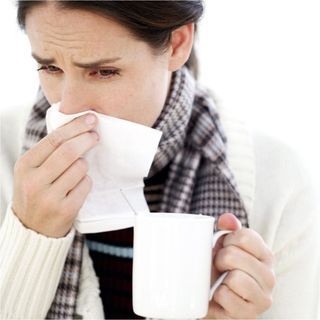**Understanding the Intersection of Cancer, Flu, and Vaccinations**
Cancer patients and survivors face a unique set of health challenges. One critical aspect of their healthcare involves vaccinations, particularly flu shots. With the added complexity of COVID-19, understanding the necessity of these vaccinations becomes even more vital. This blog aims to elucidate the importance of flu shots for cancer patients and survivors, highlight the relevance of pneumococcal vaccinations, and discuss the interplay between COVID-19 and flu.
Should Cancer Patients and Survivors Get a Flu Shot?
Yes, cancer patients and survivors should get a flu shot. Here's why:
1. Weakened Immune Systems**: Cancer and its treatments, such as chemotherapy and radiation, can weaken the immune system, making patients more susceptible to infections, including the flu. A flu shot helps reduce the risk of influenza, which can be severe or even fatal in immunocompromised individuals.
2. Preventing Complications**: For cancer patients, the flu can lead to serious complications like pneumonia, bronchitis, sinus infections, and ear infections. It can also exacerbate preexisting conditions, making it harder for the body to recover.
3. Healthcare Strain**: During flu season, hospitals often see a surge in patients. Flu shots help reduce the number of flu cases, thereby easing the burden on healthcare systems and ensuring that cancer patients can access the care they need.
Flu Shots for Older Adults
Older adults, particularly those over 65, are at higher risk for severe flu-related complications. This risk is amplified for older adults with cancer or a history of cancer. Here's why flu shots are crucial for this demographic:
1. Age-Related Immune Decline: As people age, their immune systems weaken, making them more vulnerable to infections like the flu. Flu vaccines are specially formulated for older adults to boost their immune response.
2. High-Dose Flu Vaccines: The high-dose flu vaccine is designed for people 65 and older. It contains a higher amount of antigen to create a stronger immune response and is more effective in preventing the flu in this age group.
3. Reduced Hospitalizations: Vaccination can significantly reduce the risk of flu-related hospitalizations among older adults, including those with underlying health conditions such as cancer.
You May Need a Pneumococcal Shot, Too
In addition to the flu shot, cancer patients and survivors may also need the pneumococcal vaccine. Here’s why:
1. Preventing Pneumonia: The pneumococcal vaccine protects against pneumococcal disease, which includes pneumonia, meningitis, and bloodstream infections. Cancer patients are at increased risk for these infections due to their compromised immune systems.
2. Dual Protection: Getting both the flu and pneumococcal vaccines offers dual protection. Influenza can lead to pneumococcal pneumonia, so being vaccinated against both helps provide comprehensive protection.
3. Consult Healthcare Providers: It's essential for cancer patients and survivors to consult with their healthcare providers to determine the best vaccination plan, including the pneumococcal vaccine.
COVID-19 and Flu
The COVID-19 pandemic has added another layer of complexity to flu season. Here’s how the intersection of COVID-19 and flu impacts cancer patients and survivors:
1. Concurrent Infections: It is possible to contract both COVID-19 and the flu simultaneously, which can be devastating for cancer patients. Vaccination against both viruses is crucial to reduce the risk of co-infection.
2. Strained Healthcare Systems: Both COVID-19 and the flu can overwhelm healthcare systems. By getting vaccinated against the flu, individuals help reduce the overall burden on healthcare facilities, ensuring better care availability for those battling cancer.
3. Safety Measures: The measures to prevent COVID-19, such as wearing masks, hand hygiene, and social distancing, also help prevent the spread of the flu. Cancer patients should continue to adhere to these guidelines to protect themselves.
Conclusion
Flu shots are an essential part of healthcare for cancer patients and survivors. They help prevent serious complications, reduce hospitalizations, and support the overall immune health of those with weakened systems. Additionally, older adults and those with cancer should consider the pneumococcal vaccine for added protection. In the era of COVID-19, these vaccinations become even more critical to protect vulnerable populations and ensure the resilience of healthcare systems. Always consult with healthcare providers to determine the most appropriate vaccination strategy tailored to individual health needs.
Dr Aravind Reddy
.jpeg)








Comments